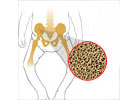A new study has said that estranged couples who choose to undertake client-directed feedback in their marriage counseling sessions have greater chances of sustaining their relationship.
A new study has said that estranged couples who choose to undertake client-directed feedback in their marriage counseling sessions have greater chances of sustaining their relationship.
In the largest clinical trial with couples to date, the couples were quizzed on four simple questions based on individual, interpersonal, social and overall well-being.As part of the study, 205 randomly selected partners from southern Norway were followed for two years- October 2005 to December 2007.
The experts used the Outcome Rating Scale system to assess the couples' response to the set questions.
Accordingly, the therapy for the clients was altered in order to help open lines of communication between clients and therapists.
The reason for estrangement ranged from communication problems to infidelity and physical/psychological issues.
However, half of the couples in the study used the client feedback system, while the other half did not.
Advertisement
Just 18.4 percent of those couples had separated or divorced, compared to 34.2 percent for those couples who didn't have client-based feedback incorporated into their sessions.
Advertisement
Sparks said: "According to the research, when clients believe they - not the therapist - are responsible for change, results are better and last longer.
"In some therapy, clients can become passive and wait for the therapist to come up with the 'magic bullet.' If they get better, they figure it was the therapist.
"These kinds of situations often lead to dependency, where clients are reluctant to end treatment or get caught in a kind of treatment revolving door-after therapy they lose ground and return.
"The most important element for successful therapy is client engagement. When clients buy into the process, believe it will be helpful, and participate with the therapist in working on difficulties, they will have better outcomes."
The study was published in the Aug. 3 issue of the Journal of Consulting and Clinical Psychology. (ANI)
Source-ANI
RAS












